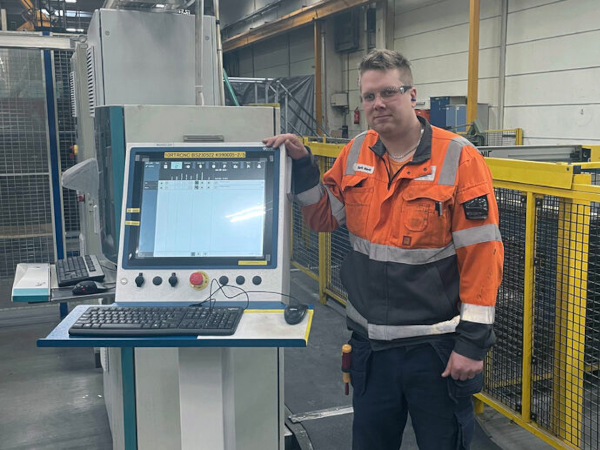Date: 8 April 2009
And he is one of only two Britons who honcho Japanese corporations (the other is Howard Stringer, chairman, CEO and president of Sony Corp.). Mr. Chambers, 52 years old, was born in Brunei and spent his childhood in Singapore and Sri Lanka before returning to the U.K. at the age of 16. He graduated with a degree in applied physics from University College, London University, and following in his father’s footsteps joined Shell, now part of Royal Dutch Shell PLC, as a chemical engineer and held various posts there for 10 years.
He later worked as European sales director for Mars Inc., the U.S. candy and pet foods maker, before going to Pilkington in 1996, where he rose to the position of CEO by 2002.
With the acquisition of Pilkington in June 2006, Nippon Sheet Glass tripled in size and instantly became one of the world’s biggest makers of window glass and windshields. The company has manufacturing operations in 29 countries, sales offices in 130 countries and more than 30,000 employees.
When he was named chief executive of the group in June 2008, Mr. Chambers was tasked with transforming a very Japanese firm with a primarily domestic -- and shrinking -- market into a global industry front-runner. But with Nippon Sheet Glass’s key business lines in the construction and automotive sector hard-hit by the global recession, Mr. Chambers has an uphill task ahead of him.
The company, citing a slump in demand across all its business sectors, has said it expects to report its first annual loss in six years. It lowered its net profit guidance for the fiscal year that ended in March to a 22 billion yen loss ($233 million) from a previously estimated 9 billion yen profit.
Tor Ching Li interviewed Mr. Chambers at his office in Tokyo.
WSJ: What was your first job and the biggest lesson you learned from it?
Mr. Chambers: My first job was as a process technologist on a Shell refinery. I spent the first six months trying to solve each problem on my own and from scratch. I then learned that there was a comprehensive plant guide that covered most things, and got to know some very experienced people around the other refinery departments. From that time I learned to start every significant challenge by consulting the experienced people in the organization, then bring in your own judgment and conclusions, not the other way round!
WSJ: What advice would you give someone in management in a company being acquired or that is acquiring?
Mr. Chambers: In our case, it was a merger of companies with different management styles and origins, so there is phenomenal scope for misunderstanding. For example, at meetings during integration with various heads of departments -- with professional translators, and some of the staff were proficient in English -- we would agree on something and go our separate ways. Every time I would write down in an email exactly what I felt we had agreed, but about half the time it came back that that was not what we had agreed at all. If I had executed what I thought was understood, imagine the mistrust and frustration that would generate. It’s not a question of the words, these are translated and understood, but what is meant by those words and goals is different according to different cultures. When meeting with people from fundamentally different cultures it’s always good to go back and check that everyone has understood what has been agreed upon.
WSJ: Is there a difference between managing in Asia and in Europe or America?
Mr. Chambers: For a European company, in some respects doing business with the Chinese is not too different from doing business with Americans. But in the case of a Japanese company acquiring a British or American public company, one of the key issues is the stark difference in the boards’ energy, commitment and time spent on its three key stakeholders: customers, employees and shareholders. Japanese boards spend around 70% of their energy and commitment on customers, 25% on their employees and 5% on their shareholders. British and U.S. firms spend 50% of their time worrying about the shareholder, and around 25% each on the other two. I think what is needed is to spend a third on each of the three. If you lose any one of them, the business model breaks down. I have amended my attitude to some extent, and my Japanese colleagues have done that as well.
WSJ: What’s the one thing you wish every new hire knew?
Mr. Chambers: The basics of finance, including understanding an income statement, the difference between profit and cash, and what creates and destroys value in our business. The reality is, this must be acquired, but all middle and senior managers need this in a company with flat organization and delegated responsibility. In future, all senior managers must be able to speak English for this company to be able to work. For those who don’t, we are helping them to learn; it’s part of their training.
WSJ: What was the toughest management decision you’ve had to make?
Mr. Chambers: Having to dismiss a manager on a point of principle. In my previous company, there was a manager who was using his spare time to run another business that was coming into conflict with the company’s business. He believed that what he was doing was correct and it was not that clear in the written contractual agreement that it was not allowed, but it didn’t pass the smell test. If I didn’t take action, everybody else’s perception would be that it was an acceptable practice, and that was no good. What was tough was that it was a question of judgment, and the rules concerning the issue were not clear.
WSJ: What are the most important attributes of a good manager?
Mr. Chambers: Absolute integrity, and not asking your subordinates to do something you are not prepared to do yourself. Communicate very regularly down the organization so all know what the common objectives are. Lastly, say what you are going to do, and do what you say. Colleagues will believe what you do much more than what you say.
WSJ: Would you recommend someone starting out in your field attend business school?
Mr. Chambers: I would only recommend an M.B.A. after something like 5 years experience and a management job already held. If I were recruiting and had to choose between someone experienced with no M.B.A. and an M.B.A. with little relevant experience I would go with the former.






Add new comment